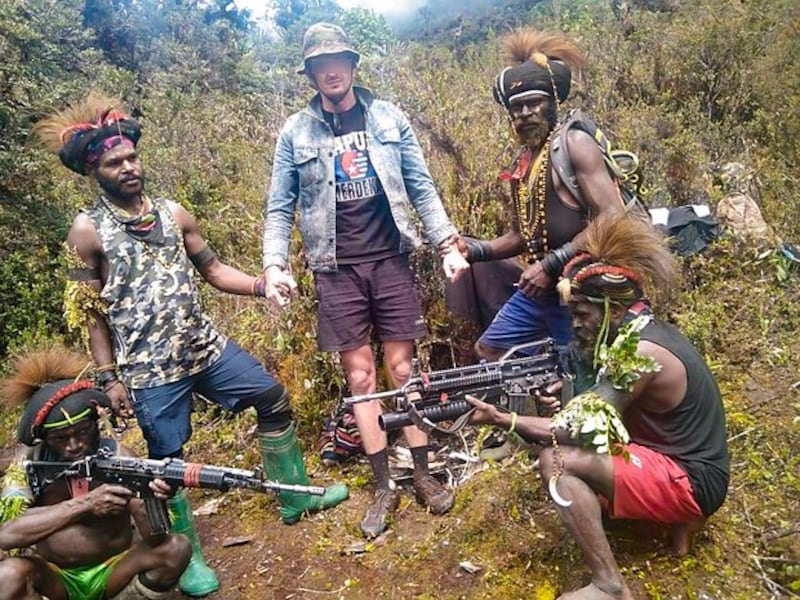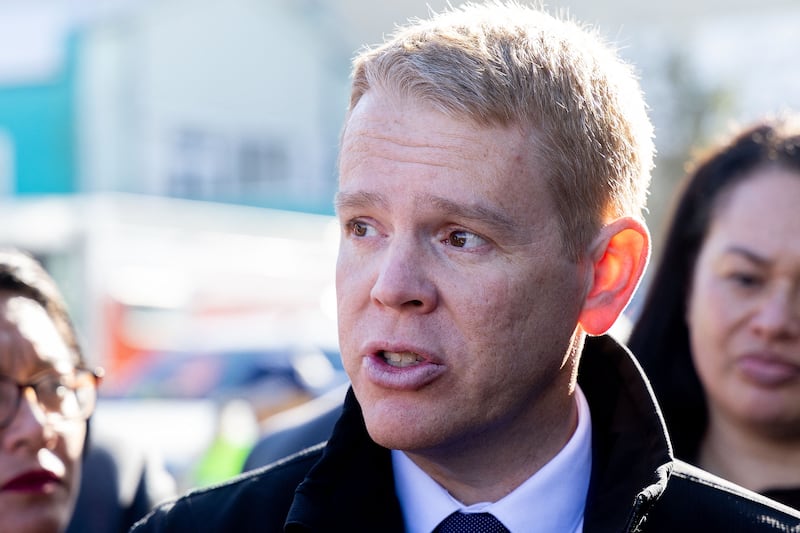As a New Zealander’s kidnapping by Papuan separatists enters its seventh month – the longest the rebels have held anyone captive – Indonesia’s military said on Wednesday it still was prioritizing working with community leaders to free the hostage taken in February.
The longer that pilot Philip Mehrtens remains in captivity, the more his life is at risk, New Zealand Prime Minister Chris Hipkins said in Auckland on Wednesday as he urged the rebels in Indonesia's Papua region to free the 37-year-old father-of-one.
The Indonesian armed forces (TNI) stands ready to carry out military operations if necessary, spokesman Rear Admiral Julius Widjojono told BenarNews on Wednesday, although earlier he had said that would be a last resort to minimize civilian casualties.
“The TNI has decided to prioritize coordination with community and religious leaders as an effort to free the pilot,” Julius told BenarNews.
“Don’t doubt the TNI’s performance, they have risked their lives in totality trying to free the hostage.”
Inspector General Mathius Fakhiri, the chief of police in Papua, told BenarNews they were facilitating measures for community leaders to approach rebel commander Egianus Kogoya.
The Liberation Army has been seeking independence from Indonesia since 1963, when Papua, a former Dutch colony, was annexed by Jakarta. The Free Papua Movement has waged a low-level guerrilla war against Indonesian rule ever since.
Mehrtens, a pilot for domestic airline Susi Air, was taken hostage on Feb. 7 after rebels from the West Papua National Liberation Army (TPNPB) burned his plane on the tarmac at the Paro district airport in Nduga, a regency in the Highland Papua province.
Back then, Egianus, the local commander of the Liberation Army, said in a statement that they would not release the pilot unless Indonesia freed Papua from “colonization.”

On April 24, when there was last news about the hostage, a Liberation Army spokesman said Mehrtens was safe and unharmed.
On Wednesday, BenarNews contacted a Liberation Army spokesman, Sebby Sambom, for comment and to find out about Mehrtens current status.
“I’m in a public area so I can’t respond yet,” Sambom told BenarNews.
In a similar incident in 2021, Papuan rebels held hostage another Susi Air pilot from New Zealand, and his passengers, but later released them unharmed. And in 1996, rebels kidnapped a group of 26 Indonesian and foreign nationals and held them captive for 130 days.
Since Mehrtens was kidnapped, the Indonesian military has made efforts to search for him but has been unsuccessful.
Four Indonesian soldiers were killed in April when rebels ambushed security forces who were conducting an operation to rescue the pilot, the military had said.
At the time, a separatist spokesman warned that the rebels controlled the territory and that the TNI would not succeed. They also demanded that Indonesian security forces be withdrawn from Papua and that the international community be involved in peace talks with them.

In Auckland on Wednesday, Prime Minister Hipkins said the six-month milestone this week of Mehrtens’ kidnapping would be a difficult time for the pilot’s family, Radio New Zealand reported.
“I want to urge once again those who are holding Phillip to release him immediately. There is absolutely no justification for taking hostages,” RNZ quoted Hipkins as saying.
“The longer Phillip is held the more risk there is to his well being and the harder this becomes for him and for his family.”
When contacted in Jakarta, a spokesman for Indonesia’s foreign ministry also said that they were in constant touch with New Zealand’s government.
“Until now, communication between the government [of Indonesia] and New Zealand continues,” Teuku Faizasyah told BenarNews.
Violence and tensions in Papua, a region that makes up the western half of New Guinea island, have intensified in recent years.
The region has a history of human rights violations by Indonesian security forces and police. Papuan separatist rebels also have been accused of attacking civilians.
In 1963, Indonesian forces invaded Papua, a former Dutch colony like Indonesia, and annexed it. In 1969, the United Nations sponsored a referendum where only about 1,000 people voted.
Despite accusations that the vote was a farce, the U.N. recognized the outcome, effectively endorsing Indonesia’s control over Papua.
